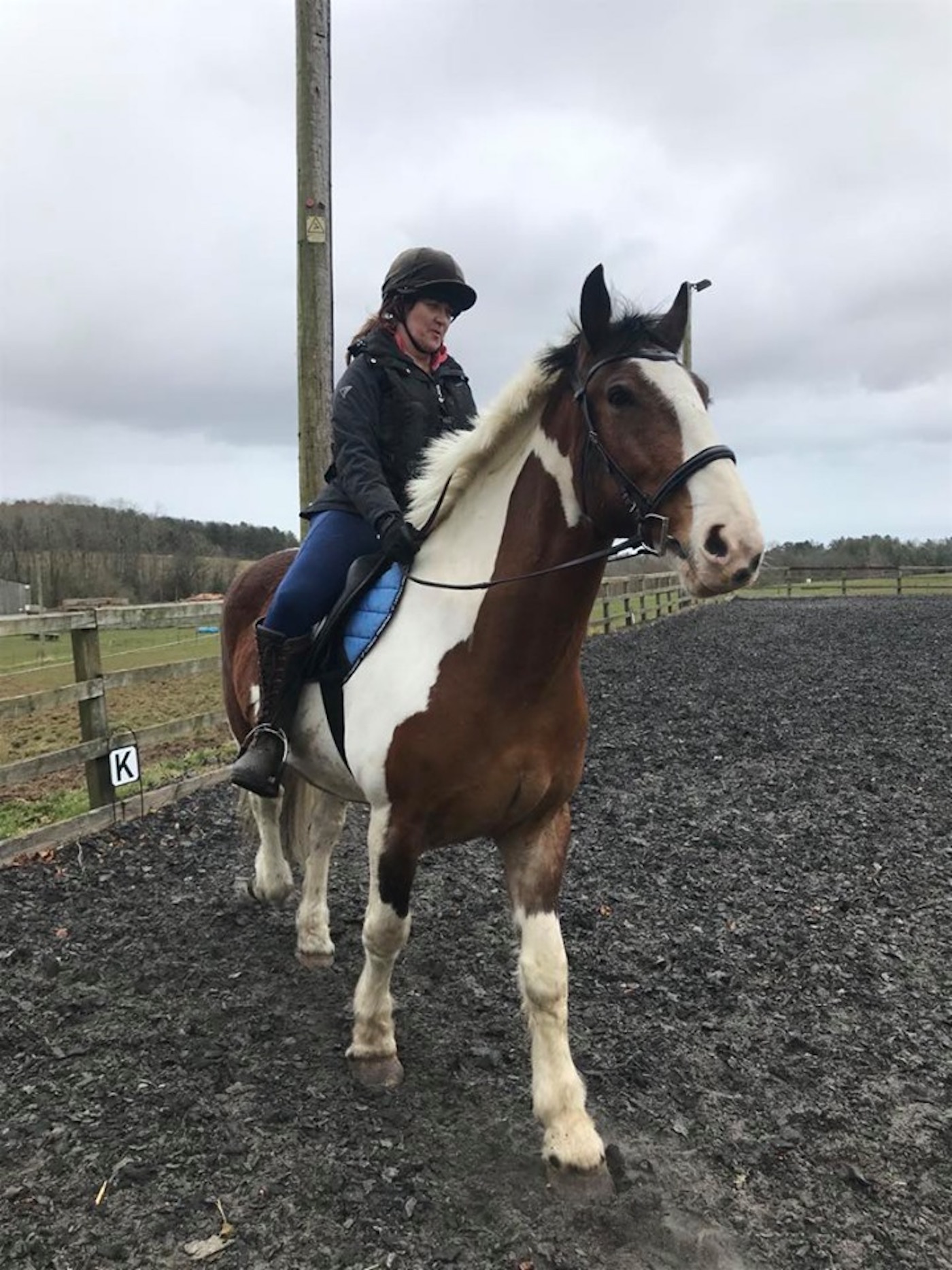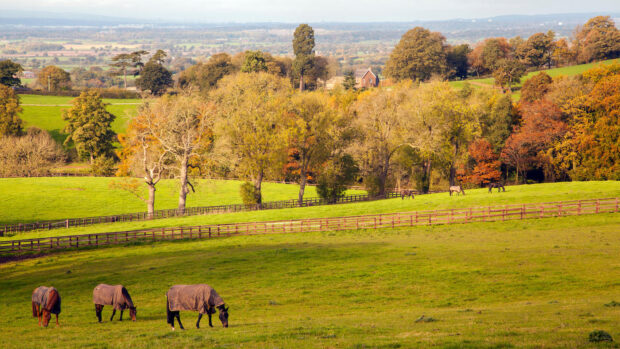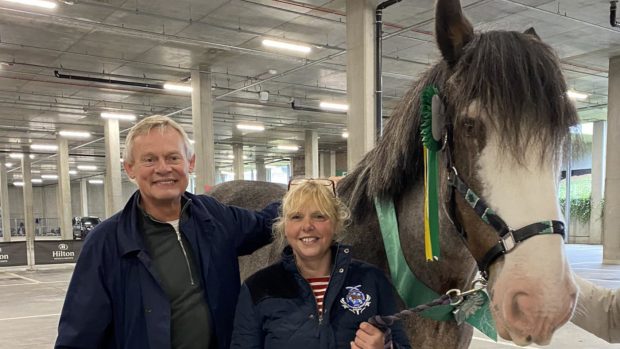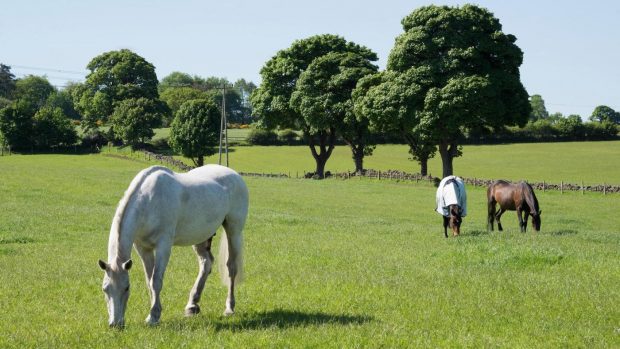A gelding who “never gave up” and survived grass sickness has delighted his owner by returning to ridden work seven months later.
Newcastle-based Julia Wood’s 16.1hh gelding Muddy was taken to the Dick Vet Equine Hospital, Edinburgh, on 9 September last year.
“Muddy had come in from the field and I noticed he was sweating between his front legs and had a twitch at his hindquarters so I rang the vet,” Julia told H&H.
“For a few days before he had appeared well in himself, but had been leaving some hay in his stable and his bed had been cleaner with less droppings so I was worried he could have an impaction.”
Julia said after vet examination it was agreed 11-year-old Muddy should be taken to the local animal hospital for further testing.
“His heart rate was up and by the time he arrived at the hospital he was dripping with sweat,” she said.
“The vet said they would do some tests and I received updates every couple of hours. They said Muddy had good gut sounds so at the time they weren’t convinced it was grass sickness.”
Grass sickness is an often-fatal condition that typically occurs in grazing horses. It can be acute, subacute or chronic in nature. While around half of the chronic cases may recover with careful nursing, acute cases are normally put down on welfare grounds. If acute cases are not euthanised, death often occurs within 48hrs of the onset of clinical signs.
Julia said she received a further update at 12.30am to say Muddy’s condition had deteriorated and he needed to be transferred to the Dick Vet.
“The vet said they now suspected it was grass sickness,” she said. “My big concern was whether he would be fit enough to travel as I didn’t want to put him through a three-hour journey if he wasn’t.
“My husband Perry and I collected him and began the journey. I remember every time we went through a village with street lights, Muddy would whinny so I knew he was ok.”
Muddy was taken for emergency treatment on his arrival at the Dick Vet.
“By 6.30am the vets said it was looking very likely to be grass sickness, but there is no test to confirm it,” said Julia.
“At that point it was touch and go – it was awful. I was told the next seven days would determine if it was a sub-acute or chronic case.”
Muddy spent three weeks at the hospital receiving round-the-clock nursing.
“He would gain weight, and then lose it again and have good and bad days. He was being hand-fed and it was all about trying to get him to eat,” she said.
“On 30 September he had stabilised and was well enough to come home. The vets said they hadn’t had a horse turn around as quickly as Muddy had in such a long time.”
Julia said Muddy continued on his road to recovery, being fed four times a day, and by November he showed signs of being on an “upwards curve”.
“It was a case of keeping him eating,” said Julia. “After trying lots of different things he began consistently eating soaked grass pellets and from there his grazing and haylage intake increased from then. The Equine Grass Sickness Fund charity and the Dick Vet hospital were amazing resources and provided so much support.
“It was an awful time but he never gave up – and we never gave up. He’s such a people horse and I think it’s what helped him get through.”
After receiving vet approval, Muddy returned to exercise at the beginning of March.

“It was really emotional getting back on. He was so responsive and seemed so happy,” she said.
Article continued below…

Disappointing news in quest for equine grass sickness vaccine
The field trial for an equine grass sickness vaccine has proved inconclusive, but has also thrown up new information about

Grass sickness – a veterinary emergency needing immediate action

Subscribe to Horse & Hound magazine today – and enjoy unlimited website access all year round
Julia has urged other owners to get to know what is normal for their horses and to be aware of grass sickness signs.
“Muddy had seemed well in himself in the days leading up to the day apart from his stable being cleaner, until I found him sweating,” she said.
“People should look out for signs and if they’re ever concerned get in touch with their vet straight away.”
Would you like to read Horse & Hound’s independent journalism without any adverts? Join Horse & Hound Plus today and you can read all articles on HorseandHound.co.uk completely ad-free




